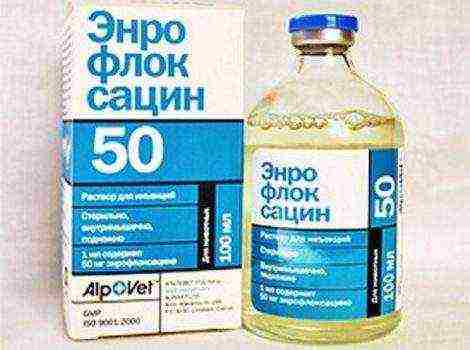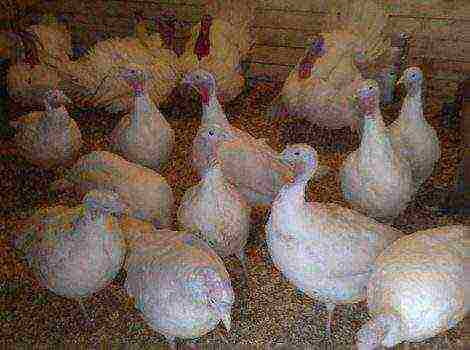Content [show]
Symptoms and treatment of Marek's disease in birds
When breeding poultry, farmers inevitably face diseases that birds are susceptible to. The incidence of the livestock is not a pleasant thing, because first of all it is a high level of economic damage, plus the whole disease can negate all the work spent on breeding birds. Marek's disease is one of the fairly widespread ailments, to which chickens, broilers, and other types of domestic birds can be particularly susceptible. How to recognize a disease, as well as how to deal with it, is described in this article.
Marek's disease
For the first time, the ailment was described by a researcher from Hungary named Marek in 1907. Despite the fact that Marek himself christened the disease chicken polyneuritis, later the name of the disease was associated with the name of the discoverer. In our country, people first started talking about Marek's disease in 1930, and at the same time its study began. There are three forms of the disease:
- Neural, in which the peripheral nervous system is affected. In severe cases, it is accompanied by paresis and paralysis in diseased individuals.
- Ocular, ocular, in other words. It is accompanied by a deterioration in vision, and in some cases, its loss. The lethal outcome reaches 30%.
- Visceral, with the formation of tumors on internal organs built of solid tissue.
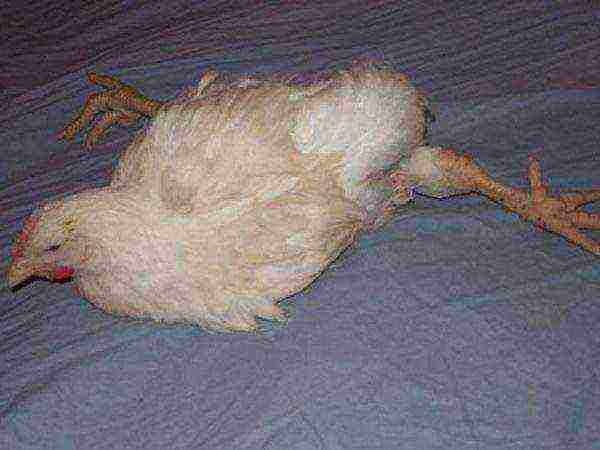
By the type of course, the disease is classified into two forms:
- Sharp
- Classic
Symptoms and signs in chicks and adults
The incubation period ranges from two weeks to 150 days, largely depends on the age of the bird, genetic predisposition, individual resistance of the immune system of each individual individual. Depending on the form of the course, the symptoms of the disease differ.
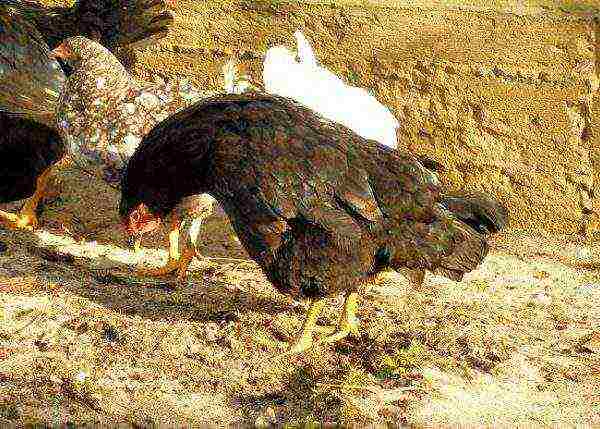
In the acute form of Marek's disease, symptoms similar to leukemia are observed. The disease affects young animals, chickens aged from 30 days to five months... Due to the high virulence, the entire herd is exposed to the disease within 7-14 days. Some individuals suffer from paresis and paralysis. The main symptoms include digestive disorders, weight loss, loss of appetite, impotence. Clinical signs are caused by the formation of tumors on the parenchymal organs, leading to malfunctions in the body. It is accompanied by a sharp decline in productivity and a high mortality rate.
In the classical form of the course, the lethality does not exceed 30%... The nervous system is most often affected, less often the eyes. With depression of the nervous system, lameness, sagging of the wings and tail, and possibly collapse of the neck are possible. Some individuals are susceptible to semi-paralysis, which, as a rule, most often disappear without a trace. In the case when the infection affects the organs of vision, there is a color change in the iris of the eyes., often accompanied by visual impairment, and in some cases, complete blindness. The pupil itself changes, taking on a narrow, pear-shaped or other shape, while there is no reaction to light. With eye damage, sick individuals most often die in a period from one month to one and a half years.
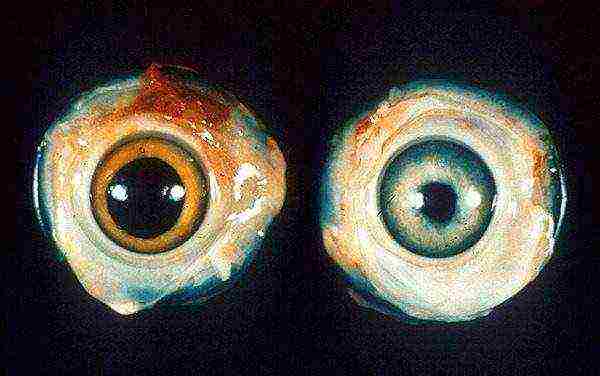
Treatment of ailment
The disease is caused by the Herpes virus and is highly contagious.The whitened members of the flock become a source of spread of infection, releasing the virus into the external environment within 7-20 days from the moment of infection. Carriage of viruses lasts one and a half to two years, in some cases throughout the entire life span. In case of recovery, stable immunity is formed with the ability to transfer antibodies to offspring.
At the moment, there is no specialized treatment for this ailment.... In case of detection of a focus of infection, antiviral therapy is carried out, quarantine measures are applied, in most cases, slaughter to prevent spread. The single most well-established way to prevent disease is with vaccines.
In adult chickens
It is possible only in the initial stages of the disease, when the bird has not yet undergone paralysis. For the purpose of antiviral therapy in the treatment, the domestic drug Acyclovir is most often used... However, even timely started therapy does not guarantee the prevention of bird mortality.
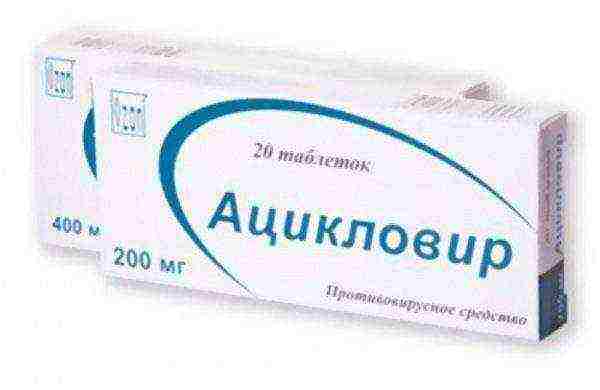
Broilers
As a method of treating meat chickens, it is used preventive vaccination, which is done to chicks at one day of age. In some cases, revaccination is carried out at the age of 10-20 days. If 5-10% of the total number is affected, it is not advisable to treat adult meat breeds of chickens. After slaughtering all infected livestock, the house must be thoroughly disinfected. before placing a new batch of young animals.
In geese, ducks and other birds
Chickens, somewhat less turkeys, quails, and then waterfowl such as geese, ducks and swans are more susceptible to herpetic viral infection. The only successful form of treatment is prevention of illness through immunization with vaccinations.
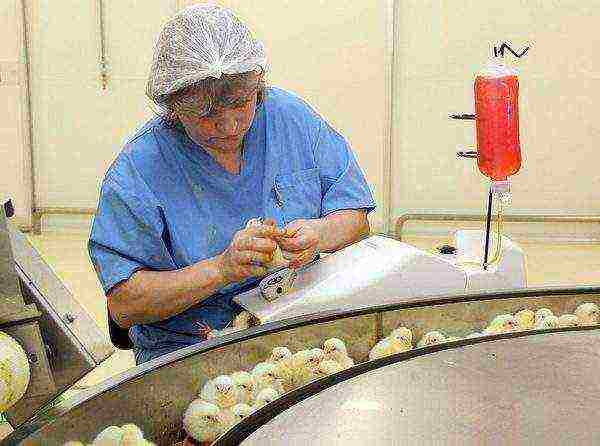
Vaccination
Inoculate the bird with live weakened viruses. Immunization of young animals is carried out at one day of age... After the procedure, the birds develop anti-bodies to the virus. The following vaccines are used for immunization:
- Liquid virus vaccine based on strains of chicken herpes virus.
- Liquid virus vaccine based on strains of the herpes virus of turkeys.
- Vaccine Nobilis Rismavac and Nobilis / CA
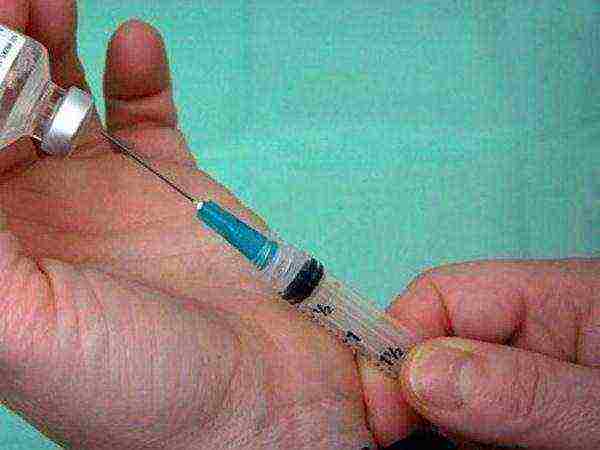
Measures to combat the spread of the virus
To prevent the growth of morbidity in the room where the affected individuals were kept, thorough disinfection is carried out in accordance with veterinary standards. Incubation of eggs is possible after four times treatment with formaldehyde vapor. It is allowed to resume breeding of agricultural birds no earlier than a month after taking measures related to cleaning the area from the virus. Despite the fact that the virus itself quickly dies in the environment, in feather follicles it is able to remain virulent for 8 months.
In order to keep poultry breeding profitable, and the birds themselves are not exposed to viruses and pathogenic microorganisms, it is necessary to pay special attention to the purchase of young stock and preparation of the poultry house.
You should buy hatching eggs, chickens, adult chickens and other types of birds only from trusted breeders. Special emphasis should be placed on the preparation of the premises in which the living creatures will be kept in the future. Preventive remediation measures, carried out in advance in the poultry house, can reduce the degree of infection of young animals at times.
